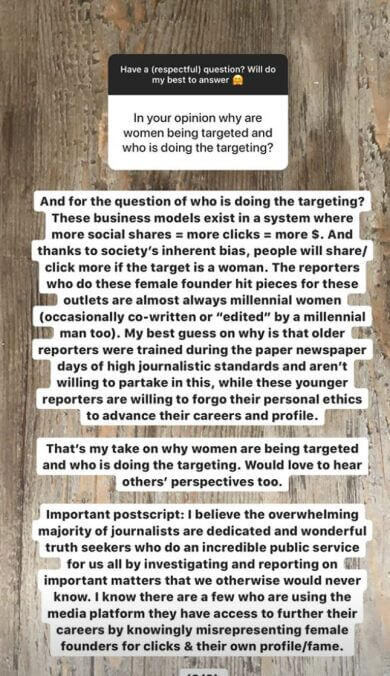The Problem With Shitty Women Bosses Isn't That They're Women, It's That They're Assholes
Latest

In December 2019, the Verge chronicled the grueling, verbally abusive, and all-round physically and emotionally exhausting experiences reported by employees at luggage startup Away. In particular, the story focused on the ways CEO Steph Korey allegedly built her Instagrammable brand on the backs of an underpaid and relentlessly harangued workforce. It’s not a new story. In the past few years, any number of women startup founders have been exposed as being no better than their male counterparts. Once hailed as the “SheEOs” who would bring feminism to the modern office, these founders, reporting revealed, were just a different packaging of the same exploitive start-up culture.
In a series of Instagram Stories, Korey has spoken out against the investigations of woman founders, such as the Verge report—and ostensibly the employees who felt they had no recourse beyond going to the media. “Society expects women to be motherly and nurturing,” she writes. “Being tough and ambitious is a positive quality in a man, but icky in a woman.” That’s the ethos of the “girlboss” argument: that it is good for all women to have any women in positions of power and that criticisms discourage women from taking on leadership roles. Korey paints recent news coverage of Away as hit pieces targeting her because she’s a woman, and she ignores employees’ complaints and her own alleged part in their exploitation, using euphemisms like “tough” in place of words like “abusive.”

The narrative laid out in the report on Away has become a common outcome of the startups launched by a generation of heralded women founders. In September 2019, employees at ThirdLove, the Instagram-popular bra startup, said that co-founder Heidi Zak, along with her husband, co-CEO David Spector, created a toxic work environment built around bullying. Thinx period panty startup CEO Miki Agrawal was ousted after employees accused her of firing employees because they were pregnant. At the co-working startup the Wing, once hailed as a feminist alternative to male-dominated workplaces, employees allege that ousted CEO Audrey Gelman created an inhospitable, racist work environment for BIPOC employees that protected abusive bosses and clients. At the woman-founded sustainable clothing startup Reformation, employees claim that CEO Yael Aflalo turned away models of color and discriminated against non-white employees. The list seems to go on and on.
-

-

-

-

-

-

-

-

-

-

-

-

-

-

-

-

-

-

-

-

-

-

-

-

-

-

-

-

-

-

-

-

-

-

-

-

-

-

-

-









































